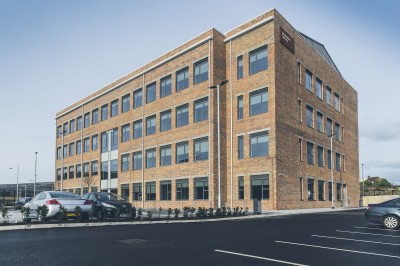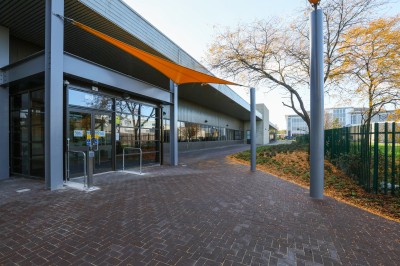Moving your business to a new office space can be a transformative step towards growth and improved productivity. However, the process of office relocation requires careful planning and consideration.
In this guide, you will learn what to consider while changing the premises of your office. By following this guide, you'll be fully able to smoothly transition and find the ideal location that aligns with your business goals and needs.
Assessing Your Office Needs
Before even starting to search for an office, it's crucial to assess your current office needs. Identify the reasons driving the move and evaluate the limitations of your existing space.
Consider your future growth projections and define the essential requirements for your new office while keeping your budget in mind.
Setting Your Office Relocation Timeline
Creating a realistic timeline is essential for a successful relocation. Define the timeframe required for each step and allocate your resources accordingly. Assign responsibilities to individuals within your organization and form a dedicated relocation team. Prepare a comprehensive project plan that outlines the tasks, milestones, and clear deadlines. This will help you control the whole process.
Choosing the Ideal Location
Selecting the right location for your new office is critical for your business's success. Therefore, it's important to analyse your target market and customer base to identify strategic areas. For example, if your business is in finance and tech, you should consider looking for an office in London.
Consider the transportation and commuting options for your employees and clients. Evaluate the availability of necessary amenities and other facilities to make your business dealings easy. In addition, now more than ever, it's getting more popular to prioritise employee work-life balance when choosing a location.
Budgeting and Financial Planning
Budgeting while searching for an office is vital to an office relocation. Calculate the relocation costs, including moving, renovations, and setup expenses. Allocate funds for office infrastructure and ongoing operational expenses. It's essential to create a contingency budget to account for unexpected costs that may arise during the process.
Finding Real Estate Agents and Office Space
Partnering with a reputable commercial estate agent or using an office search service like Prime Office Search can significantly streamline the search process. If, of course, you clearly define your office space requirements, such as square footage, layout, and amenities.
Explore leasing and purchasing options based on your budget and long-term plans. Prepare for property viewings and inspections to ensure the space meets your needs. Lastly, negotiate lease terms and conditions to secure favourable terms for your business.
Designing and Customizing Your Office Space
Designing and customizing your office space can significantly impact productivity and employee satisfaction. Understand the importance of office layout and design in fostering a conducive work environment.
Collaborate with architects and interior designers to create a functional and visually appealing space. Maximize space utilization and consider incorporating branding elements that reflect your company culture.
Ensure compliance with safety and accessibility standards for a welcoming workplace.
Communicating with Employees and Stakeholders
Clear communication is essential throughout the office relocation process. Develop a communication strategy to keep employees and stakeholders informed. Share relocation plans with employees and address any concerns they may have. Update clients, suppliers, and other stakeholders about the move. If the office is large, don't forget to organise orientation and familiarisation sessions to help employees acclimate to the new office.
Coordinating Logistics and Relocation Services
Efficient coordination of logistics and relocation services is vital to minimise disruptions and delays. Hire professional movers and logistics companies that specialise in office relocations.
Create a detailed inventory of office assets to ensure nothing is lost or damaged during the move. Plan for the safe transportation of equipment and furniture. Coordinate with vendors for disconnection and reconnection services to ensure a seamless transition. Aim to minimise downtime and maintain productivity.
Setting Up Utilities and Essential Services
Setting up utilities and essential services is crucial for a functional office space.
If the office doesn't already have the essential necessities, contact local utility providers in advance and schedule installations to avoid delays.
Arrange for internet and phone connectivity to ensure uninterrupted communication. Set up security systems and access controls to safeguard your premises. Manage mail and package forwarding services to avoid disruption. Plan for waste management and cleaning services to maintain a clean and organised environment.
Creating a Post-Move Checklist
A post-move checklist can help streamline the relocation process. Prepare a comprehensive list outlining tasks to be completed after the move. Give clear directions on who will be responsible for each task after the move. Conduct an inventory check after the move to account for all assets. Test and inspect the facilities and all the newly installed or offered services after the full office setup. Address any issues immediately.
Employee Onboarding and Support
Support your employees during the transition. If needed, assist them with the logistics, and provide resources to simplify the adjustment period.
Offer training on new office systems and protocols to ensure a seamless transition. Facilitate team collaboration and communication exercises to maintain productivity. Encourage feedback and address employee needs to promote a positive work environment.
Celebrating the Successful Office Relocation
After a successful office relocation, it's important to celebrate the move. Organise a grand opening event to mark the occasion and invite important guests and clients to celebrate with you.
Recognise and appreciate employees' efforts throughout the relocation process. Showcase the new office space to clients and stakeholders can enhance relationships. Document the journey and share success stories to inspire others.
Frequently Asked Questions (FAQs)
What factors should I consider when choosing a new office location?
Consider factors such as target market, strategic locations, transportation options, amenities, and employee work-life balance when choosing a new office location.
How can I budget for office relocation expenses?
Budget for office relocation expenses by calculating costs, allocating funds, factoring in operational expenses, and creating a contingency budget.
Should I lease or purchase office space?
Decide whether to lease or purchase office space based on your business's long-term plans, financial situation, and flexibility requirements.
How do I ensure a smooth IT infrastructure transition?
Ensure a smooth IT infrastructure transition by assessing technology needs, planning network infrastructure, coordinating equipment relocation, prioritizing data security, and testing systems in the new office.
How do I communicate the office relocation plans to employees?
Communicate office relocation plans to employees through a well-defined strategy, informing them promptly, addressing concerns, updating stakeholders, and organizing orientation sessions.
Conclusion
Finding a suitable office space for your business in the UK will require a systematic approach and careful consideration of various factors.
Hopefully, the steps outlined in this guide gave you an idea of what to consider and avoid for a successful office relocation that aligns with your business goals and preserves or even improves productivity.
If you’re having questions about office search or would like a consultation on what office would work best for you, please contact us via chat, call 0800 433 7888 or email us at info@primeofficesearch.com.







